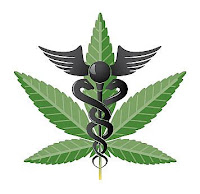 On the front of the Journal of the American Dental Association this month was the dentist’s role and prevention of prescription opioid abuse. I read the article, understood a dental professional’s need to recognize abuse and try to prescribe enough medicine for the pain associated with the procedure and not in excess. But little did I know that I would have be face-to-face with an issue of a non-prescription drug just a day later!
On the front of the Journal of the American Dental Association this month was the dentist’s role and prevention of prescription opioid abuse. I read the article, understood a dental professional’s need to recognize abuse and try to prescribe enough medicine for the pain associated with the procedure and not in excess. But little did I know that I would have be face-to-face with an issue of a non-prescription drug just a day later!I saw a patient last week that I hadn’t seen in over a year. As I became reacquainted with his teeth - we discussed any changes in health status and medications. He first apologized to me about his teeth and reminded me that he lives with chronic pain with generalized neuropathies, arthritis, and spinal problems and it’s hard for him to get out and about, let alone brush his teeth or floss. As we reviewed his medical history and medication list – there were many strong prescription drugs and he also confessed to self-medication with marijuana to help him with the pain. He had a high medical IQ and was well versed on THC and it’s mechanisms of blocking pain. But then he shocked me. He asked me my personal opinion on medical marijuana and he wanted ME to approve and support the possibility of creating a synthesized THC inhaler so he wouldn’t have to smoke. What struck me the most, even after his dental appointment was finished and the work day was completed was that a patient had asked me my direct and professional opinion on marijuana, or marijuana alternative in this case. This had never happened to me before. WHY ASK ME – his dentist? Because I’m a dental health professional and I'm a part of taking care of his overall health.
Ironically the same evening I was watching the news and surfing the television channels and Dr. Oz was discussing medical marijuana and what marijuana does in blocking the pain nerve receptors. He was also debating its legalization with a panel of speakers, including Montel Williams (diagnosed with multiple sclerosis), an oncologist who has prescribed medical marijuana for the past 30 years to his cancer patients, and a representative of the FDA. I was amazed. There were SO many people in the audience with such heartfelt and strong feelings on this issue - and what a spectrum of feelings about access & legalization.
Marijuana in the past for me hasn’t been presented as a medical issue, especially in high school or college, it was more a peer pressure or addiction issue or socialization issue. But now as I have gotten older, and my background in health and neurobiology, and access to realize how many severe conditions & polypharmacy people today deal with in prescription drugs (and the expense) just to stay out of pain - it really has opened my eyes. Additionally knowing the abuse of non-prescription drugs, being a dental practitioner in California and knowing that here medical marijuana is legal (as well as 14 other states) and also because here a PATIENT was stating he needed it to function and not feel such severe pain - it is truly an issue of quality of life.
I was reminded of this class after watching this presentation, we took as part of our dental school curriculum after listening to this discussion. The class was about dental conditions and chronic pain - and one discussion was about a condition called trigeminal neuralgia (nerve pain). Our professor brought in a patient whose quality of life was dramatically changed – previously engaged, previously happy and employed with her whole life ahead of her, changed by pain and an unknown way to cure it or change it. Would prescription drugs help her or could something like THC? Would the quality of her life be changed?
I am still thinking of what my position is – on prescription & non-prescription drugs. I prescribe medicine for patients after I perform dental surgery. As dental professionals we recognize that there is abuse, many times it is not difficult to tell – but I think I need to be aware of those people that have to suffer with chronic pain and a deterioration of the quality of life. Because daily life is hard enough WITHOUT chronic pain.
image courtesy of: legalmichiganmarijuana.com





